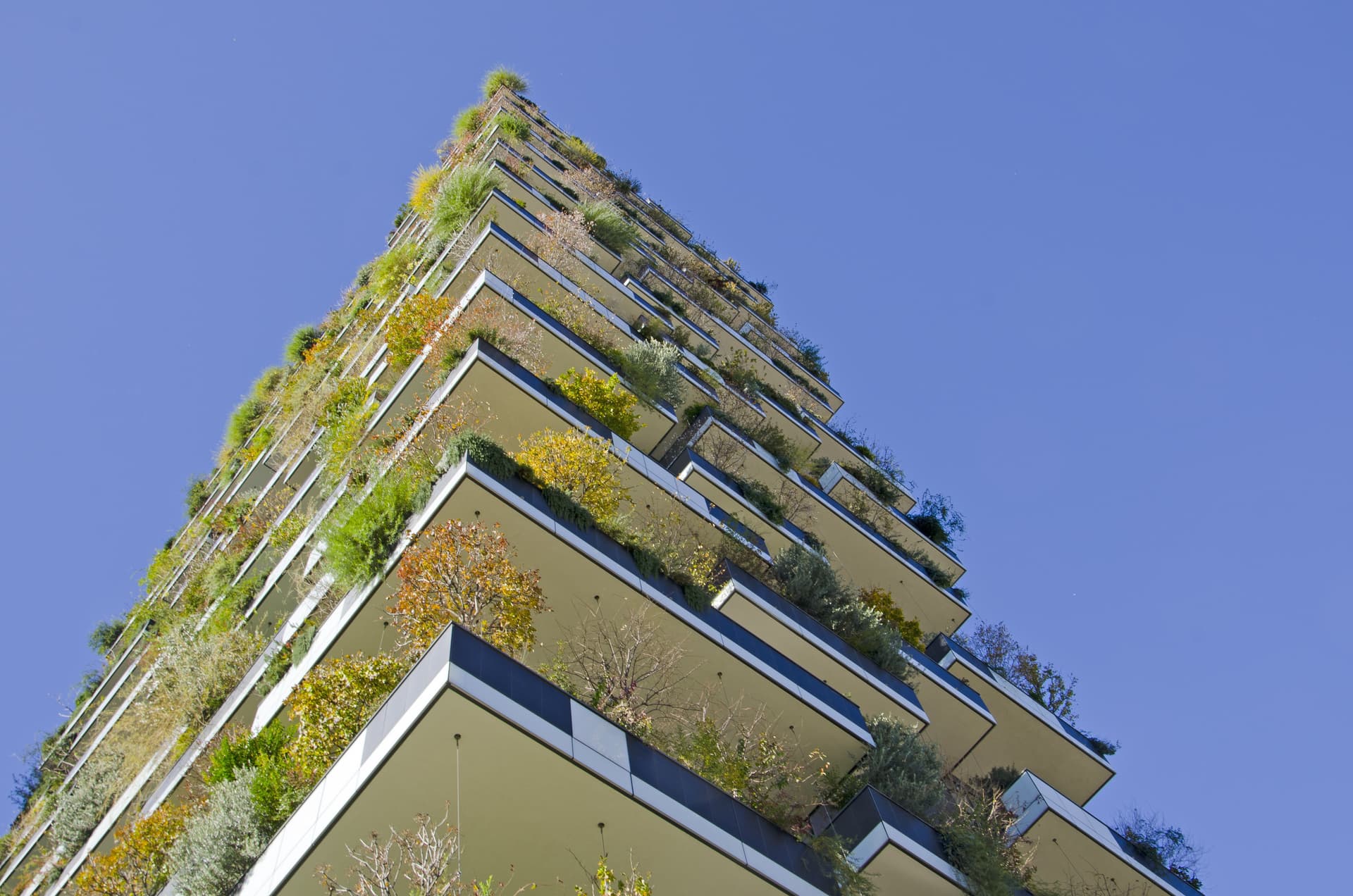Deutsche Hypo Survey Shows: Green Buildings Are Gaining Ground

11.
August 2021
Deutsche Hypo Survey Shows: Green Buildings Are Gaining Ground According to a survey compiled by Deutsche Hypo Real Estate, so-called “green buildings” are becoming more and more popular. Rising demand on the investment market is attributed at least to some extend to the Green Deal passed by the European Union, and plays a key role in the implementation of the “Sustainable Finance Action Plan” associated with it. That said, there is yet no legally valid definition of the term “green building.”
EU Objectives and the Role of Green Buildings
Purpose of the “Sustainable Finance Action Plan” is to invest extra capital in a sustainable economy in order to keep rolling back CO? emissions. The sustainability classification system takes centre stage in this effort. Its effect is to establish sustainability as an investment objective for investment funds, insurance companies and pension funds. Accordingly, sustainability ceases to be an option and is instead becoming part of a legally binding guideline for investment behaviour. In response, the Hypo survey predicts a surge in demand for sustainable real estate assets. Another reason for a steady increase in demand, according to the survey, could be the growing climate change awareness among owners and tenants. Buildings that fall short of the “green building” standard, for instance, risk losing in appeal among tenant leads and buyers, thereby posing an impairment risk for the owner side.
What Sort of Criteria Should “Green Buildings” Meet?
As said above, there is currently no legal framework for the label “green building” yet. However, Deutsche Hypo developed its own definition of “green building” as early as 2012. It focuses on the resource-efficient consumption of energy, water and materials. It argues that the outcome that an environmentally friendly real estate economy should therefore seek is the integration of a property’s entire life cycle. To achieve this, it is of the essence to minimise the energy consumption and to rely on renewable energies and recyclable building materials like cork. In addition, it should become standard procedure to integrate the general public during the planning stage in order to create first-rate working and living environments. As a result, not just the construction and operation of a building would be less resource consuming, but economic, environmental and social objectives would equally gain in prominence. Deutsche Hypo estimates that taking this approach could deliver a potentially faster rental income growth, bring down vacancies and preserve the value of the property. Further benefits could include easier financing and a reduced cost of debt on the corporate level. The reason for this is that the EU might soon require a lower equity cover for green real estate loans.
Transaction Volumes and Market Players
The survey goes so far as to suggest that the construction of commercially used real estate without sustainability certification is barely feasible anymore. Deutsche Hypo concludes that investors are the prime movers in this context by attaching great importance to the sustainability aspect in real estate. In 2019, pension funds invested particularly copiously in green real estate – claiming a share of 69 percent. Trailing them were sovereign wealth funds at 52 percent and insurance companies at 49 percent. Deutsche Hypo notes that a quarter of all investments are earmarked for green buildings. Another sector that is leading on the sustainability market is office real estate – with green buildings accounting for one third of all investments. Next in line come the logistics and hospitality sectors with a green investment share of 19 percent and 14 percent, respectively. This prompts the survey to conclude that sustainability targets have clearly begun to move into focus for investors. Then again, it remains to be seen whether buildings not bearing the green label are indeed at a disadvantage on the market.
Sources: www.haufe.de www.deutsche-hypo.de